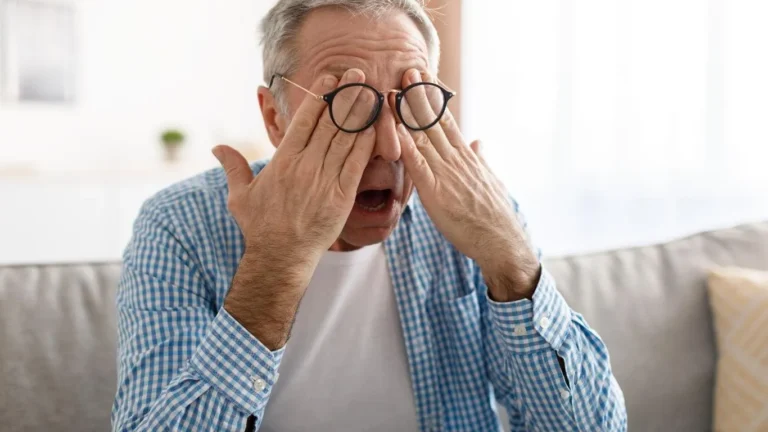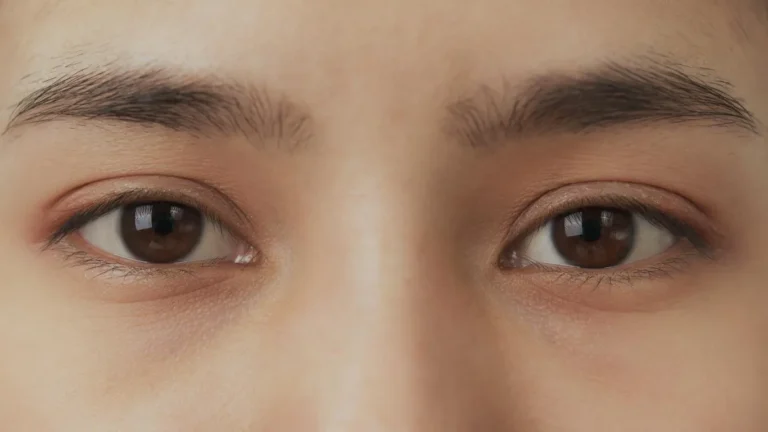GERD and Bad Breath: Understanding the Hidden Connection
Ever noticed your breath turning a bit funky no matter how often you brush or chew gum? I’ve been there—and honestly, it’s frustrating. What surprised me the most was discovering that my persistent bad breath wasn’t just about oral hygiene. It was actually linked to my acid reflux. If you’re dealing with both, you’re not alone. GERD and bad breath often go hand in hand, and the connection is more complex than you might expect.
How GERD Triggers Bad Breath

Stomach Acid Escaping Upward
One of the sneakiest culprits behind foul-smelling breath is the very thing GERD is known for: stomach acid. When acid repeatedly backs up into the esophagus, it doesn’t just cause that infamous burning sensation. It can also leave behind a sour, almost metallic scent that rides up your throat and out through your mouth.
Even worse, this reflux can irritate your throat lining and sinuses, creating the perfect environment for bacteria that thrive in low-oxygen environments—the kind that make your breath smell like you’ve skipped brushing for days.
Bacteria and Biofilm Buildup
GERD may not directly cause bacteria in your mouth, but it sure does help them stick around. When acid disrupts the natural pH balance, it interferes with saliva’s ability to wash away bacteria. That leaves your mouth dry, acidic, and… let’s just say not-so-fresh.
This is especially common at night. When I used to wake up with that awful morning breath, I blamed it on sleeping with my mouth open—turns out it was my reflux making everything worse.
Food Regurgitation and Partial Digestion
Have you ever burped up food hours after eating? That partially digested material, combined with acid, creates a smell that’s anything but pleasant. The longer the food sits undigested in your stomach (common with GERD), the more volatile compounds form—think sulfuric, eggy smells that no mint can mask.
It’s also worth noting that belching from acid reflux can act as a vehicle, literally bringing those odors up and out.
Remedies: Medical and Lifestyle Approaches

Medical Options That Work
The most effective solution is often addressing GERD itself. If you’re dealing with frequent heartburn and breath issues, it’s time to talk to your doctor about:
- Proton pump inhibitors (PPIs): These reduce stomach acid production significantly.
- H2 blockers: Useful for milder reflux symptoms, often taken before meals.
- Prokinetics: Help your stomach empty faster to reduce food stasis and odors.
For deeper insight into medication and professional options, check out this detailed guide on GERD diagnosis methods and how they support long-term treatment.
Simple Lifestyle Shifts That Make a Big Impact
Some remedies I personally tried before jumping to prescriptions—and surprisingly, they helped more than I expected:
- Sleeping on an incline: Elevating my head with a wedge pillow reduced nighttime reflux and that awful morning breath.
- Chewing sugar-free gum: This one really helped. Stimulating saliva helps neutralize acid and clean your mouth. Try to avoid mint flavors though—they can trigger reflux for some people.
- Diet tweaks: Cutting out acidic foods like tomatoes, citrus, and even chocolate helped a lot. I learned the hard way that late-night spicy snacks were my enemy.
- Hydration: Drinking water after meals helps wash down any lingering acid and keeps the mouth clean.
You might also benefit from exploring natural remedies to soothe reflux and reduce symptoms that contribute to halitosis.
When to Worry: Signs It’s More Than Just GERD

Chronic Symptoms That Warrant a Doctor Visit
If your bad breath persists despite all efforts, it might not just be reflux. Some warning signs that it’s time for further evaluation include:
- Frequent sour taste in the mouth
- Persistent sore throat or hoarseness
- Difficulty swallowing
- Sudden weight loss
- Worsening breath even with good dental hygiene
These may signal complications like esophagitis or even Barrett’s esophagus in severe, long-untreated GERD cases.
In rarer situations, bad breath could even indicate a digestive blockage or infection. That’s why accurate evaluation is critical. Learn more about GERD treatment options if you haven’t found relief yet.
And remember—if you’re constantly covering your mouth during conversations or avoiding getting too close to people, you’re not alone. I know how isolating it feels. The good news? Once GERD is under control, the breath tends to follow. It really is that connected.
To fully understand how acid reflux develops and leads to secondary issues like this, you can also check out the GERD overview article for a deeper foundation.
Oral Hygiene Isn’t Enough—But It Still Matters

Why Good Dental Habits Still Count
It’s easy to assume that brushing more will fix the smell. I’ve been there—switching toothpaste brands, rinsing like crazy, even carrying mouth spray. But when GERD is involved, oral care is a support act, not the main treatment.
Still, don’t underestimate its role. Acid can erode enamel, inflame gums, and create a playground for sulfur-producing bacteria. That’s why I always remind others to maintain:
- Twice-daily brushing with a soft-bristle toothbrush
- Gentle tongue scraping to reduce bacteria buildup
- Alcohol-free mouthwash to avoid drying your mouth
- Fluoride toothpaste to protect against enamel loss
If you’re noticing receding gums or yellowing teeth along with breath issues, GERD may be affecting your oral health too. You might want to review how GERD impacts your teeth.
Breath Tips That Actually Help With Reflux-Related Odor
Instead of masking the problem, I started looking at methods that soothe my digestive tract while also improving my breath. Some of these ended up being surprisingly effective:
- Baking soda rinses: I swish with a mix of water and baking soda after meals. It neutralizes acid and freshens my mouth without burning.
- Hydration + lemon water (for some): Lemon isn’t for everyone with GERD, but a small slice in warm water works for me. It stimulates saliva and keeps my mouth from drying out.
- Low-acid snacks between meals: A few slices of cucumber or apples (the sweet kind) help manage both reflux and odor by buffering acid.
- Chewing fennel or parsley: These herbs are nature’s deodorizers. I pop a few fennel seeds in my mouth after a meal, and they leave a licorice-like freshness.
You can explore other remedies in this natural guide: Home Remedies for Acid Reflux.
Foods That Make GERD Breath Worse (and What to Try Instead)

Offenders You Might Not Suspect
I once loved spicy ramen, dark chocolate, and carbonated drinks. But I learned the hard way that these foods not only triggered heartburn—they left me with breath that could clear a room.
Certain foods don’t just cause reflux—they contribute to odor directly. Watch out for:
- Garlic and onions: Powerful smell compounds that linger in the lungs and gut
- Tomato-based sauces: High in acid and sugar—bad combo for reflux and bacteria
- Processed meats: Nitrates and fats increase stomach acid and slow digestion
- Caffeinated drinks: Relax the lower esophageal sphincter and dry the mouth
- Dairy (in some cases): Can trigger bloating and mucus that feeds oral bacteria
If you’re wondering what to eat instead, check out this roundup of GERD-friendly foods that soothe your gut and won’t leave your breath hanging in the air.
GERD-Safe Breath-Friendly Alternatives
You don’t need to eat bland food forever—believe me, I’ve experimented a lot. Try swapping those triggers with these gentler choices:
- Steamed greens: Spinach, kale, and Swiss chard help with digestion and are low odor
- Boiled or baked sweet potatoes: Alkaline and naturally odor-neutralizing
- Lean poultry or white fish: Easier on the stomach than red meat
- Alkaline snacks: Melons, bananas (if tolerated), and oatmeal
- Chamomile or ginger tea: Gentle on the gut and helps freshen the breath from the inside
If you want a creative edge, browse these delicious GERD-friendly chicken recipes that won’t make you sacrifice flavor or breath confidence.
Is It Really GERD—Or Something Else?

Other Causes Worth Considering
Sometimes, what seems like GERD-related bad breath may have another root cause. In my case, I also discovered mild sinus congestion, which was making things worse. If you’ve ruled out GERD treatment and still experience persistent halitosis, you may want to explore:
- Sinus infections or post-nasal drip
- Undiagnosed diabetes (sweet or fruity breath)
- Kidney or liver issues
- Medication side effects
That’s why it’s worth getting a full workup. Start by reviewing your condition with a trusted provider and consider a professional diagnosis path.
For me, it was a combination of GERD and dry mouth triggered by medication. Once both were addressed, the embarrassing breath episodes significantly declined.
If you’re unsure whether GERD is causing symptoms like fatigue, throat irritation, or dry mouth, understanding GERD symptoms in full context is a great place to start.
When GERD Breath Doesn’t Go Away—Advanced Solutions

It’s Not in Your Head—Sometimes You Need Specialist Help
Let’s be real: when brushing, flossing, diet changes, and acid reducers still leave you with foul breath, it starts to chip away at your confidence. That’s where stepping beyond general care can make a difference. I was stubborn for a while—I thought I could fix it all myself. But after months of trial-and-error, I saw an ENT (ear, nose, and throat specialist) and it changed the game.
These professionals can help assess:
- Chronic postnasal drip linked to silent reflux
- Throat or sinus damage from repeated acid exposure
- Structural issues that worsen GERD and airflow
If you’ve also dealt with a chronic sore throat, constant throat clearing, or that lump-in-the-throat feeling, you may want to explore burning throat symptoms caused by acid.
When Dental Experts Step In
If you’ve ruled out diet and reflux and your breath still packs a punch, a specialized dentist can evaluate deeper gum infections or acid-induced enamel erosion. Some even partner with gastroenterologists to co-manage difficult GERD-related oral cases.
You can also request a test for volatile sulfur compounds (VSCs)—the major cause of halitosis—which may reveal patterns specific to reflux-related odor.
Is Surgery Ever the Right Call?

Exploring the Surgical Route for Persistent GERD
For most people, lifestyle changes and medications do the trick. But for some of us, GERD symptoms—along with breath issues—just won’t quit. In my case, I didn’t need surgery, but I did explore it after years of PPIs.
If you’re in that boat, your gastroenterologist may suggest:
- Fundoplication: A procedure that tightens the valve between the stomach and esophagus
- LINX system: A magnetic device implanted to prevent acid backflow while preserving swallowing
- Endoscopic therapies: Minimally invasive approaches using scopes to strengthen the esophageal barrier
These options aren’t just about heartburn—they can also stop acid from reaching the throat and mouth, indirectly improving breath. Learn more from this complete GERD surgery guide to see if you might be a candidate.
Tracking Your Triggers and Symptoms Over Time

Why Keeping a Symptom Journal Changed Everything
One of the best things I ever did? Start writing things down. Sounds simple, but tracking what I ate, how I slept, and when symptoms like breath changes happened revealed patterns I would’ve missed. For example, I realized that stress-induced eating at night made both my reflux and my breath worse the next day.
Here’s what I log (and what you might find useful too):
- Meals and snacks (include time and portion size)
- Symptoms: breath changes, heartburn, throat irritation, etc.
- Sleep patterns and pillow elevation
- Medication schedule and effects
- Stress or anxiety episodes
Over time, I began to connect the dots between lifestyle and GERD symptoms. If you’re struggling to do the same, this tracking guide can help.
Building a Long-Term Strategy to Breathe Easy

Consistency Is the Quiet Hero
I get it—when you’re hit with bad breath from reflux, you want a quick fix. But in my experience, the biggest wins came from consistency, not intensity. Sticking to small but powerful habits (like avoiding late-night snacks or keeping my water bottle close) made a bigger difference than any fancy breath mint or miracle tea.
And when I did slip up? I didn’t panic—I just adjusted. GERD isn’t about perfection, it’s about patterns. And once I built the right ones, both my gut and my breath felt more under control.
If you’re just starting your journey, or you’ve been struggling with mysterious symptoms like this for years, I highly recommend exploring the Natural Remedies for GERD Pillar for more in-depth strategies that go beyond surface-level fixes.
At the end of the day, treating GERD is about more than just stopping heartburn. It’s about reclaiming confidence—especially in social situations. And if addressing your breath is part of that? You’re already on the right track.

Camellia Wulansari is a dedicated Medical Assistant at a local clinic and a passionate health writer at Healthusias.com. With years of hands-on experience in patient care and a deep interest in preventive medicine, she bridges the gap between clinical knowledge and accessible health information. Camellia specializes in writing about digestive health, chronic conditions like GERD and hypertension, respiratory issues, and autoimmune diseases, aiming to empower readers with practical, easy-to-understand insights. When she’s not assisting patients or writing, you’ll find her enjoying quiet mornings with coffee and a medical journal in hand—or jamming to her favorite metal band, Lamb of God.







